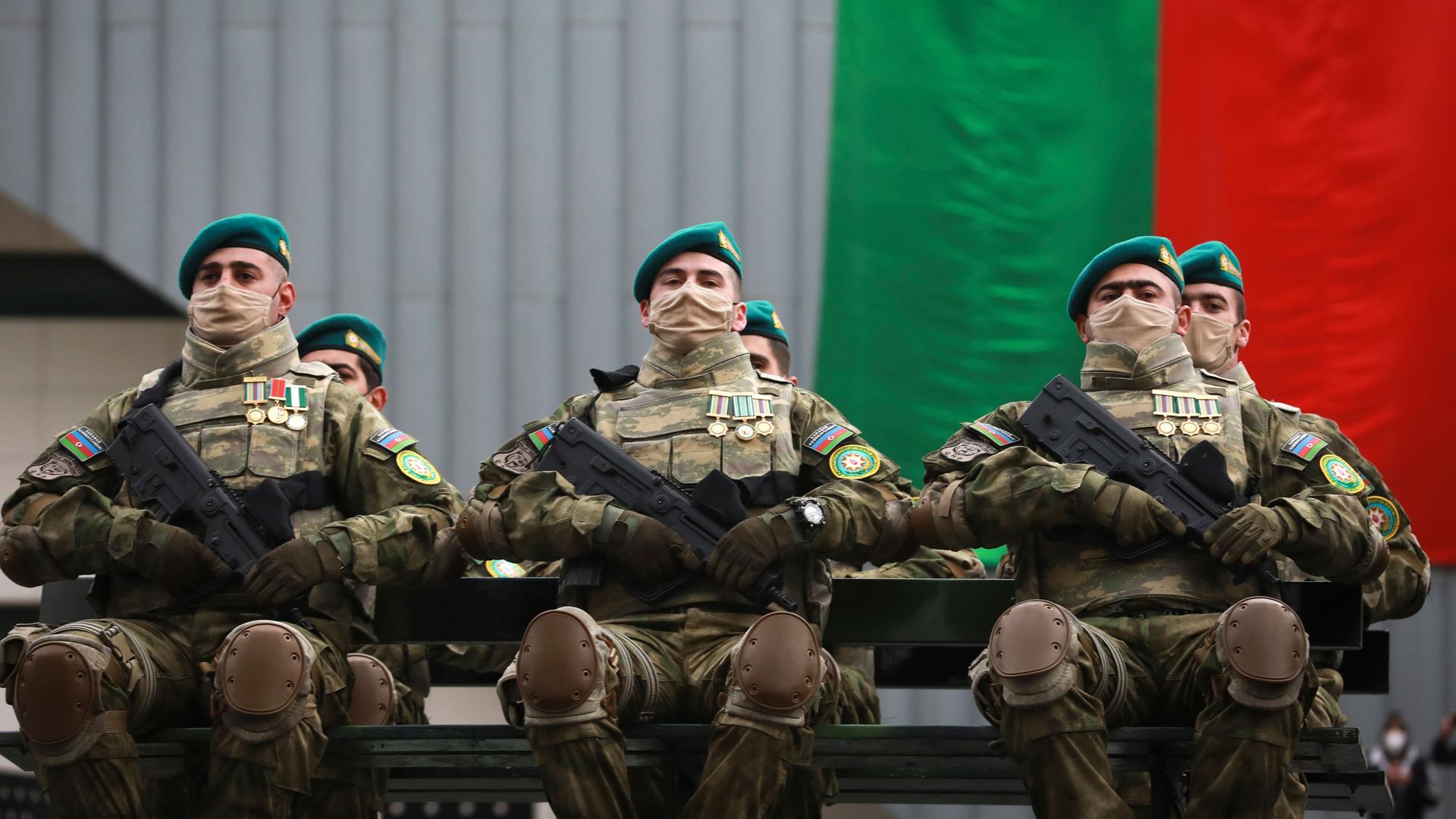Azerbaijan establishes checkpoint at Lachin Corridor, spiking tensions in Nagorno-Karabakh
This week, Azerbaijan’s armed forces established a checkpoint that cuts off and restricts access through the so-called Lachin Corridor, the one road connecting Armenia to the contested Nagorno-Karabakh territory between Armenia and Azerbaijan.
“This is very much an escalation as it comes in the wake of four months of an ongoing siege of Nagorno-Karabakh,” said Richard Giragosian, director of the Regional Studies Center in the Armenian capital, Yerevan.
Armenia and Azerbaijan have fought periodically over the territory going back to the late 1980s, and the two countries are currently negotiating a peace deal over Nagorno-Karabakh.
More than 100,000 Armenians still live in Nagorno-Karabakh, and they depend on the Lachin Corridor as the only road that connects to the rest of Armenia.
Cutting off this road puts Armenians there in a difficult situation.
Since December 2022, protesters from Azerbaijan have also attempted to block movement between Armenia and Nagorno-Karabakh, claiming to be enviromental activists.
Russian peacekeepers have been on the ground since 2020, when they helped broker a peace deal after conflict erupted again over the territory and Azerbaijan gained control of large amounts of territory.
But Giragosian said that the Russian peacekeepers now seem “either incapable or unwilling to actually enforce the terms of the Russian imposed ceasefire agreement.”
Shujaat Ahmadzada, a research fellow at the Topchubashov Center think tank in Baku, Azerbaijan, said it is important to contextualize the situation with the war in Ukraine.
“Russia’s hands are tied up because of a decision made by Vladimir Putin to invade Ukraine, and its capacity is getting tested,” Ahmadzada said.
“Russia is not capable anymore in the same way that it was doing before the war in Ukraine.”
Ahmadzada said Russia left a power vacuum that Azerbaijan is now filling by imposing its own will to gain control over the rest of the disputed territory.
The two countries continue to work toward a comprehensive peace deal. But there is still deep mistrust between them.
“There’s a commitment problem for Armenia and Azerbaijan. Armenia has a deep fear that in case of something signed, Azerbaijan would not abide by that would result in ethnic cleansing of Karabakh Armenians, or full exodus of them,” Ahmadzada said.
But Ahmadzada said he is still hopeful about the negotiation process, noting how in recent months, the two sides have been moving closer toward a deal.
Armenia has come to realize its weaker position, Giragosian said, and this is why their government is committed to signing a treaty with Azerbaijan in the coming months.
Giragosian added that Armenia is no longer pushing for self-determination, independence or for the unification of Nagorno-Karabakh with the rest of Armenia.
“Rather, it’s about the protection of the Armenians of Nagorno-Karabakh, and within the context of Azerbaijan’s territorial integrity,” he said.
This policy shift is still controversial in Armenia, where many are still angry about Armenian losses during the 2020 war. But for now, Armenians hope the world is paying attention to the plight of Nagorno-Karabakh.
Earlier this week, the US State Department called for “free and open movement” along the Lachin Corridor, and for those peace talks to continue.
Our coverage reaches millions each week, but only a small fraction of listeners contribute to sustain our program. We still need 224 more people to donate $100 or $10/monthly to unlock our $67,000 match. Will you help us get there today?
